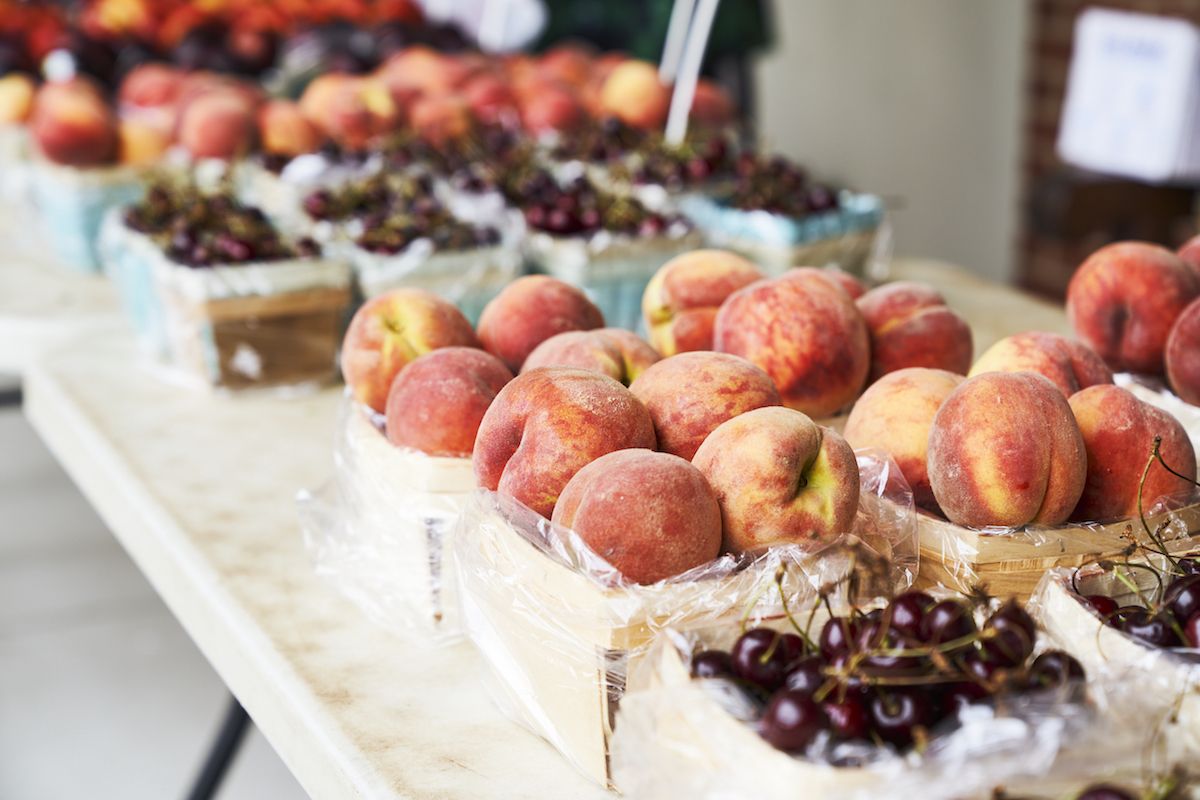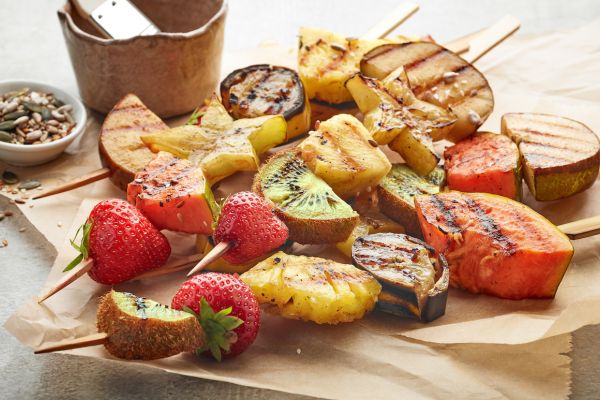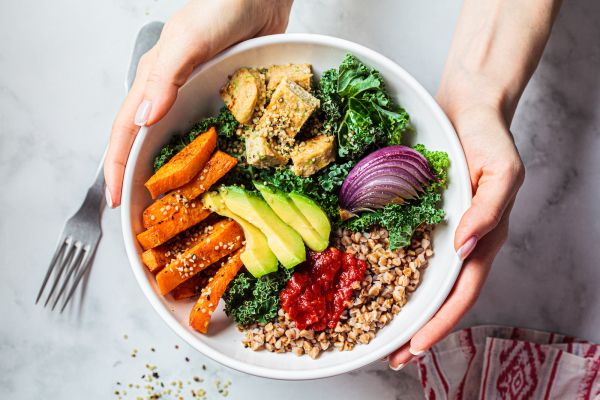When you walk into a grocery store these days, it’s normal to see much of the same produce in the store year-round. It can be very convenient to have your staple fruits and vegetables available any time you want them, but there are also benefits to choosing produce that's in season.
As part of a healthy pattern of eating, you’ll want to fill up 2/3 of your plate with plant-based foods, including lots of fruits and veggies! Choosing fruits and vegetables that are in season can have these benefits:
- Taste: Produce that is freshly picked in-season will usually be more delicious!
- Nutrition: Ripe, freshly picked fruits and vegetables tend to be at their most nutrient dense with vitamins, minerals and phytochemicals. When it comes to choosing fruits and vegetables, the more colorful, the better. Different colors signify different nutrient and, typically, the deeper the color, the greater the concentration of those nutrients. Read more about the benefits of eating a variety of colors of fruits and vegetables in our article about phytochemicals.
- Cost: Another benefit of buying produce in season is that it can be more cost-effective. Fruits and vegetables are typically cheaper when they are in season.
While fresh, seasonal fruits and vegetables have all of these great qualities, remember as you strive to add more fruits and vegetables to your plate that frozen and canned produce counts, too. In fact, frozen and canned fruits and vegetables also are harvested at the peak of ripeness and quickly frozen or canned, locking in the flavor and nutrients of seasonal produce at a cost-effective price.
What’s in season at different times of the year?
- Spring: Rhubarb, peas, asparagus, kiwi, pineapple
- Summer: Berries, tomatoes, cherries, watermelon, corn, zucchini, bell peppers, green beans, eggplant and stone fruits, such as peaches and plums
- Fall: Squash, sweet potatoes, apples, celery, hardy leafy greens, and cruciferous vegetables, such as broccoli, cauliflower and Brussels sprouts
- Winter: Citrus fruits (lemons, oranges, tangerines), pears, pomegranates, sweet potatoes, cruciferous vegetables (broccoli, cauliflower, Brussels sprouts) and squash
Need more nutrition advice?
Our registered dietitians are here to help you through your cancer journey.
In addition to choosing seasonal produce, buying locally from farmers markets can provide additional benefits. It’s a great opportunity to try fruits or vegetables that might be new to you. Local farmers often have produce available that you might not be used to cooking with, or even different varieties of some of your favorites — for example, peaches or apples.
Shopping locally also supports the family farmers in your own community and can help you and your family feel more connected to where your food comes from. In addition, it’s more environmentally friendly to buy local produce, because the food does not need to travel across the country (or the world!) by plane or truck. Check out Seasonal Food Guide to find out what’s in season near you at any time of year, and remember that many farmers who sell at markets now accept credit cards and SNAP benefits.
You don’t have to buy just seasonal produce all the time. But next time you shop, try choosing one seasonal item to get yourself started. As we head into September and fall produce comes into season, try to find new ways to cook with it, such as this perfect-for-fall carrot and apple soup!
And remember to visit our local farmers at Roswell Park’s Market in the Park, taking place every Wednesday from 11 a.m.-1:30 p.m. in Kaminski Park, now through September.



